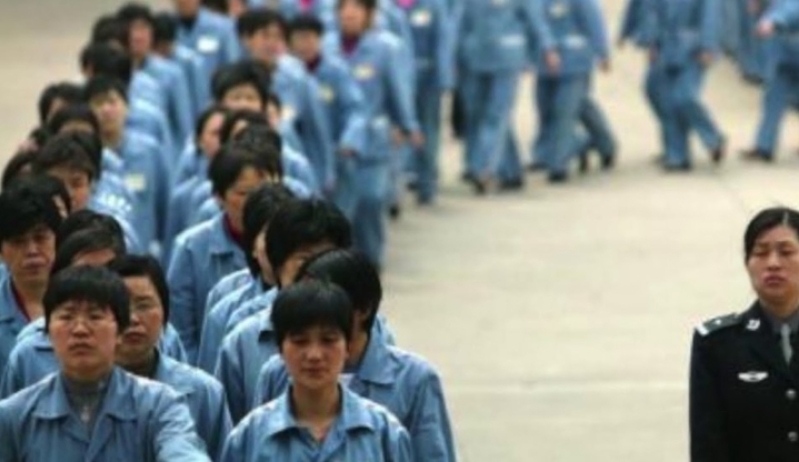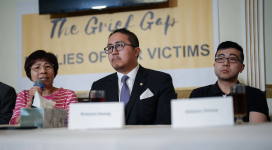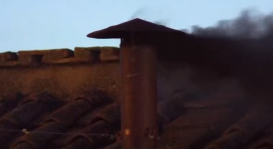
A police officer in China attacked a sick and elderly political prisoner over the length of his beard, causing him to black out, a disturbing new report has revealed.
China Aid reports that when Jiang Hangli, the wife of 65-year-old political prisoner and China 18 member Zhu Yufu, went to see her husband at Zhejiang No. 4 Prison on the morning of Feb. 11, she was turned away. At the time, authorities told her that Zhu, who suffers from hyperlipidemia, heart disease, severe hypertension, lumbar disc hernia, cholecystitis, prostatitis, and various other diseases, was connected to an IV and unable to visit with her.
However, when she met with Zhu later that day, he told her that a police officer had confronted him earlier that day about the length of his beard. When Zhu explained to the official that the razor was locked up, the man unexpectedly accosted him. The back of his head hit concrete, and he blacked out, causing his blood pressure escalate.
In a letter, Zhu's wife urged authorities in charge of prisoner management to "take actions to guarantee the safety of Zhu Yufu and keep him safe from violence" and to punish the police officer responsible for assaulting her husband.
"Do not insult Zhu Yufu or force a confession from him," she wrote. "He is old and sick. I hope the prison can give him better treatment considering his situation and offer him nutritious food."
She added, "Treating political prisoners well shows a country's international image, its political civilization, and the authority's benevolent rule."
Zhu reportedly founded the first pro-democracy movement in Communist China, the Democracy Wall, a pro-democracy publication entitled April 5 Monthly, and the China Democracy Party in addition to serving as the general secretary of the Standing Working Group of Zhejiang Preparatory Committee of China Democracy Party and a member of the Preparatory Committee of National Preparatory Committee.
Because of this, he was arrested and charged him with "subversion of state power," on Nov. 2, 1999, and he received a seven-year prison sentence. After he was released in 2006, Zhu was arrested again in 2007 and was sentenced to two years on a falsified charge of obstructing government business.
In 2011, he was arrested once again after he wrote and distributed a poem encouraging people to take to the streets around the time of the Arab Spring protests, according to Human Rights in China.
"It is time, people of China! It is time," the poem read. "The square belongs to us all; our feet are our own. It is time to use our feet to go to the square and to make a choice . . . We should use our choices to decide the future of China."
Zhu was subsequently sentenced to seven years in prison and deprived of political rights for three years.
In a separate interview with Radio Free Asia in 2016, Zhu's sister, Zhu Xiaoyan, said that because of the treatment he has endured at the hands of the Chinese government, his entire family now suffers from psychological problems.
"My brother is a cultivated man. All he wanted was to express some of his opinions on society, but he has suffered persecution at the hands of the Chinese government, not once, not twice, but three times," she said. "Every time I went to see my brother, he was always very strong, telling us not to worry about him. He was going to serve his time in this Communist Party jail.
She continued: "But the last time I went to see him, he seemed to be in a trance, as if his spirit had been broken. I felt so bad about that, that I decided I would definitely start speaking out on his behalf. Otherwise he might die in that Communist Party jail."
Florida Senator Marco Rubio, who also serves as the chairman of the Congressional-Executive Commission on China, last week argued on the Senate floor that the U.S. should take action to stop China's human rights abuses and urged officials to take up the causes of those who suffer from persecution in China.
"The Chinese people yearn for the protection of their most basic human rights, and bravely stand with their fellow marginalized and oppressed countrymen," Rubio said.
"They are China's greatest asset, not its biggest threat, as the government and Communist Party wrongly believes. Any government, any government, which views its own people with such fear and hostility will, as has often been said, find itself on the wrong side of history."







